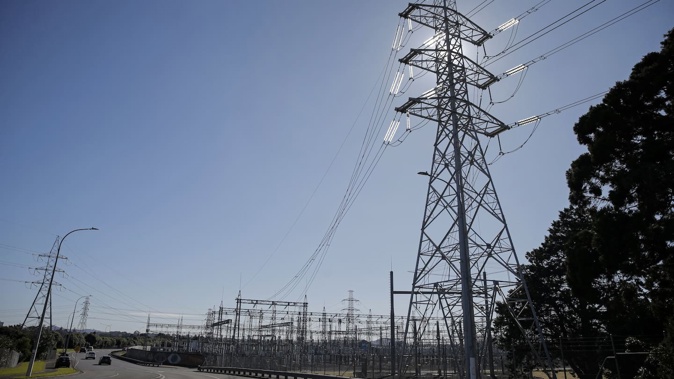
The Commerce Commission says it will let national grid operator Transpower and local lines companies increase power transmission charges, which will be an extra $15 a month for the average residential customer starting from April next year.
But in a draft decision, the commission stopped short of allowing Transpower to increase charges by as much as it had wanted.
The commission said increased investment was required to provide a reliable network with future needs in mind.
Commissioner Vhari McWha said it was conscious this would ultimately increase electricity bills, but delaying investment would lead to even higher prices down the track.
The commission is seeking feedback on its draft decisions, which, if finalised, would mean about $15 extra a month, or $180 annually, on the average residential customer’s electricity bill for the first year of the regulatory period, from April 1, 2025.
The average increase to household electricity bills will be different depending on where customers live. Some regions will see average increases of around $10, while others will see average increases of $20 per month.
Without the commission’s proposal to slow revenue recovery, consumers could be looking at price increases of about $25 a month, she said.
The electricity sector is facing a step change in spending requirements driven by the need to renew networks built last century, growing resilience needs in the face of extreme weather events, population growth and increased electrification to support the national energy transition.
In November, Transpower made its case for higher transmission charges.
The commission said it was conscious that more investment in the network was required.
“That’s why we’re proposing to increase the amount of revenue Transpower and local lines companies can earn.
”However, we haven’t allowed for all of the expenditure that they forecast.”
The commission had taken the additional step of spreading the recovery of revenue by Transpower and local lines companies over a longer period to soften the impact of initial price increases on consumers.
The proposed increase reflected the higher costs companies are facing, including the cost of borrowing, cost of materials and inflationary pressures since the last revenue review, in 2019.
“It also recognises that assets built last century — many in the 1960s and 1970s — need to be maintained and replaced.
“Electricity networks also need to grow and adapt to meet population growth and new demands, such as the increasing electrification of transport and industrial process heat. It is important that we focus on long-term investment in essential infrastructure,” she said.
“Putting it off will lead to even higher prices down the track and could lead to less resilience, more power outages and a network that’s not able to keep up with demand growth.”
The commission proposes to set Transpower’s maximum allowable revenues at a total of $5.8 billion for the next five years — an increase of 43 per cent compared with the previous five years.
However, the commission’s proposed revenue smoothing meant annual increases are capped at 15 per cent in each of the first two years and 5 per cent for the remaining three years of the regulatory period.
Transpower has said its work programme was largely driven by the need to replace and renew the assets that form the backbone of New Zealand’s grid.
”Having reviewed Transpower’s proposal and considered the advice of the independent expert, we are satisfied that Transpower’s proposed expenditure in general is underpinned by robust asset management practices and a demonstrable need,” McWha said.
However, she noted there were concerns that Transpower may not be able to recruit the workforce needed to deliver its work programme due to shortages and high demand for specialist talent.
The commission proposed an adjustment to Transpower’s expenditure allowance to account for the risk.
For local lines companies subject to revenue limits, the commission is proposing to set the maximum allowable revenues at a total of $12b.
This represents an increase of 50 per cent compared with the previous five years. However, revenue smoothing means increases are about 24 per cent on average for the first year, before rising gradually over time.
In a short statement, Transpower said it was pleased the commission had recognised its commitment to a reliable electricity grid.
“We will take some time to review the draft decision in detail,” it said.
Jamie Gray is an Auckland-based journalist covering the financial markets and the primary sector. He joined the Herald in 2011.
Take your Radio, Podcasts and Music with you









